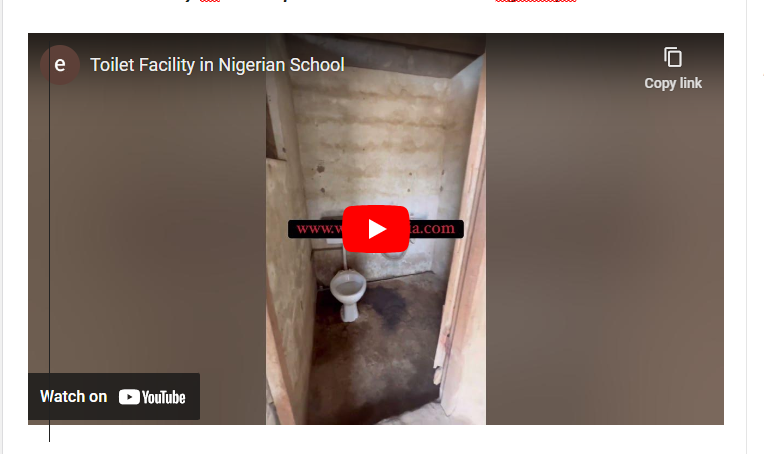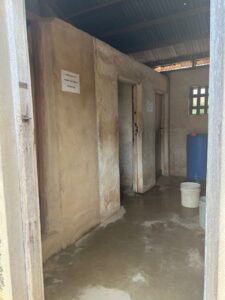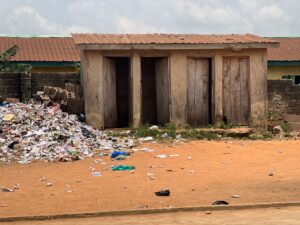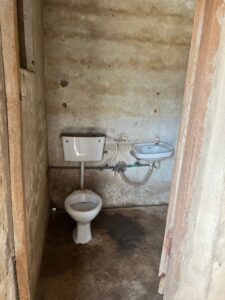
WASH field report
By Dr Babatope Babalobi and Racheal Ogundipe
A team from eWASH visited St Michaels High School, in Ota Ogun State, on March 14, 2023, to assess the status of Water, Sanitation, and Hygiene (WASH) facilities. eWASH first visited the office of the school head, Mrs C.E Adeyemi, and briefed her on the purpose of the visit. This visit was to observe the current WASH Situation in the school. She briefed the team on the current situation and highlighted that they have a major water problem in the school. This included that there was no access to drinking water on the school premises and the students had to buy sachets of water when needed. Apart from the absence of drinking water, there is also no water to use in the toilets.

Mrs Adeyemi mentioned that there are over 2000 students in her school with limited facilities. She also added that she spends a minimum of 1,000 Naira daily, to buy water for the toilet. She complained about how she has spent a lot of money trying to repair the school borehole but had no success in this regard. The student’s toilets have also been abandoned and they have to make use of 3 out of 4 cubicles meant for the teachers. She mentioned that she has to pay people to clean up the toilets and also inspect the toilets in the morning and afternoon. She hoped to be able to repair the damages in the 4 cubicles originally meant for the students, with government-provided allocation for school maintenance and also support from potential donors and funders.
We made use of an observational checklist and some of the things that we set out to observe are:
- The sources of drinking water in the school.
- History and causes of waterborne illnesses such as diarrhea or cholera
- Availability of gender-sensitive toilets in the school
- Students toilet usage
- Availability of water in toilets as well as cleanliness and those responsible for it.
- Presence of handwashing facilities in the toilet such as Soap and Water
- Attention to privacy for proper menstrual hygiene facilities and materials such as water, access to sanitary pads, waste bins, private space, etc.
- Water, sanitation, and hygiene challenges as a student
Our findings are summarized below
- There was no source of water for both drinking and making use of the toilet
- The toilets being utilized were kept clean
- There were hand-washing facilities but the toilet lacks soap
- There was no waste bin in the toilets. They practise open dumping at the back of the toilet
- They have a sanitation and environmental school club


Recommendations
- Reconstruction of the student toilets
- Students should be assigned to the maintenance of their toilets, like the sanitation and environmental club, instead of employing cleaners
- the Borehole should be given to professionals to fix
- Education, training, and awareness need to be done for the teachers and the students on behavioral change and proper ways to manage the toilet
Leave a Reply